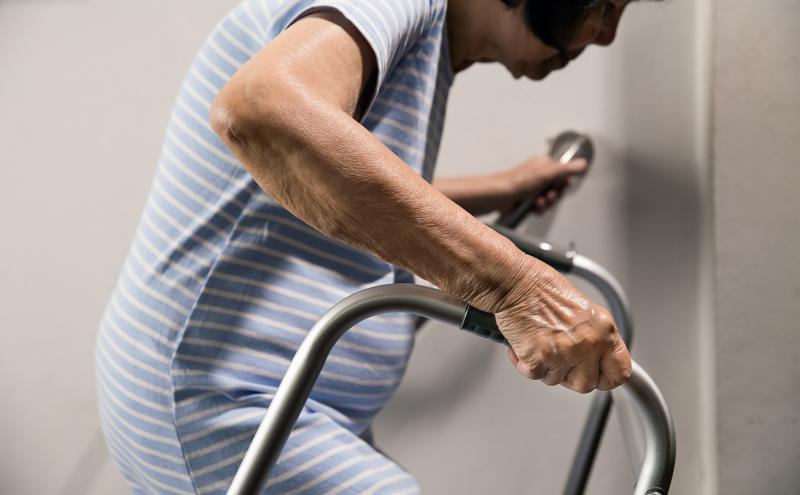
Elderly adults who are already frail before undergoing emergency abdominal surgery are at greater risk of losing their functional independence a year after the procedure, according to a recent Singapore study.
“Our findings show that, even for functionally independent older patients undergoing emergency general surgery, loss of functional independence is a significant risk in frail patients,” researchers said, noting that there are screening tools in use, particularly those reliant on comorbidity scores, that may miss these patients.
To address this, researchers used the modified Fried’s Frailty Criteria (mFCC) to measure frailty in 109 elderly adults (median age, 74 years; 53.2 percent male) who underwent emergency abdominal surgery. A quarter (25.7 percent; n=28) were deemed to be frail before admission. These patients tended to stay in the hospital longer (p=0.005) and have greater rates of unplanned readmissions (p=0.02). [World J Emerg Surg 2019;14:62]
The mFCC assesses frailty phenotypically, measuring performance in the domains of grip strength exhaustion and physical activity, among others. As a comparator, researchers also evaluated preoperative frailty using the modified Frailty Index-11 (mFI-11), whose scores are based more on comorbidities and deficits, such as diabetes mellitus, hypertension and medical history.
Sixty-nine patients (68.3 percent) were able to complete the planned follow-up 1 year after the procedure. Of these patients, 6.9 percent (n=7) had lost functional independence, scoring <80 over a total of 100 in the modified Barthel’s Index. At baseline, a large majority (92.7 percent; n=101) were deemed to be functionally independent.
Unadjusted logistic regression analysis found that the mFCC was significantly predictive of the loss of functional independence at 1 year (odds ratio [OR], 13.00, 95 percent CI, 2.21–76.63; p<0.01). The mFI-11, on the other hand, was only of borderline significance (OR, 4.42, 95 percent CI, 0.84–23.12; p=0.06).
Adjusting for potential confounders did not meaningfully altered the principal findings. The mFCC remained a significant and independent predictor of loss of functional independence (multivariable OR, 15.63, 95 percent CI, 2.12–111.11; p=0.007), while the mFI-11 did not. Scores in the Charlson Comorbidity Index likewise showed a null interaction (p=0.19).
These results reveal that the risk of loss of functional independence is a real threat to frail, elderly patients scheduled for abdominal surgery, the researchers said, “many of whom will not screen positive for frailty if the comorbidity-dominant scoring systems such as the mFI-11 are used, as opposed to phenotypic measures such as the mFFC.”
“It is important to look beyond diagnostic labels of medical comorbidities and examine multidimensional phenotypic manifestations of frailty, which appear to be a better estimate of the physiologic reserve required to withstand perioperative stress, particularly in an emergency setting,” they added.
The present study enrolled elderly patients from the Singapore General Hospital. Those who had received abdominal surgery, including laparoscopic procedures and wall hernia repairs, were eligible. Functional independence was assessed using the modified Barthel’s Index. Those who underwent gynaecological, vascular or transplant surgeries were excluded.